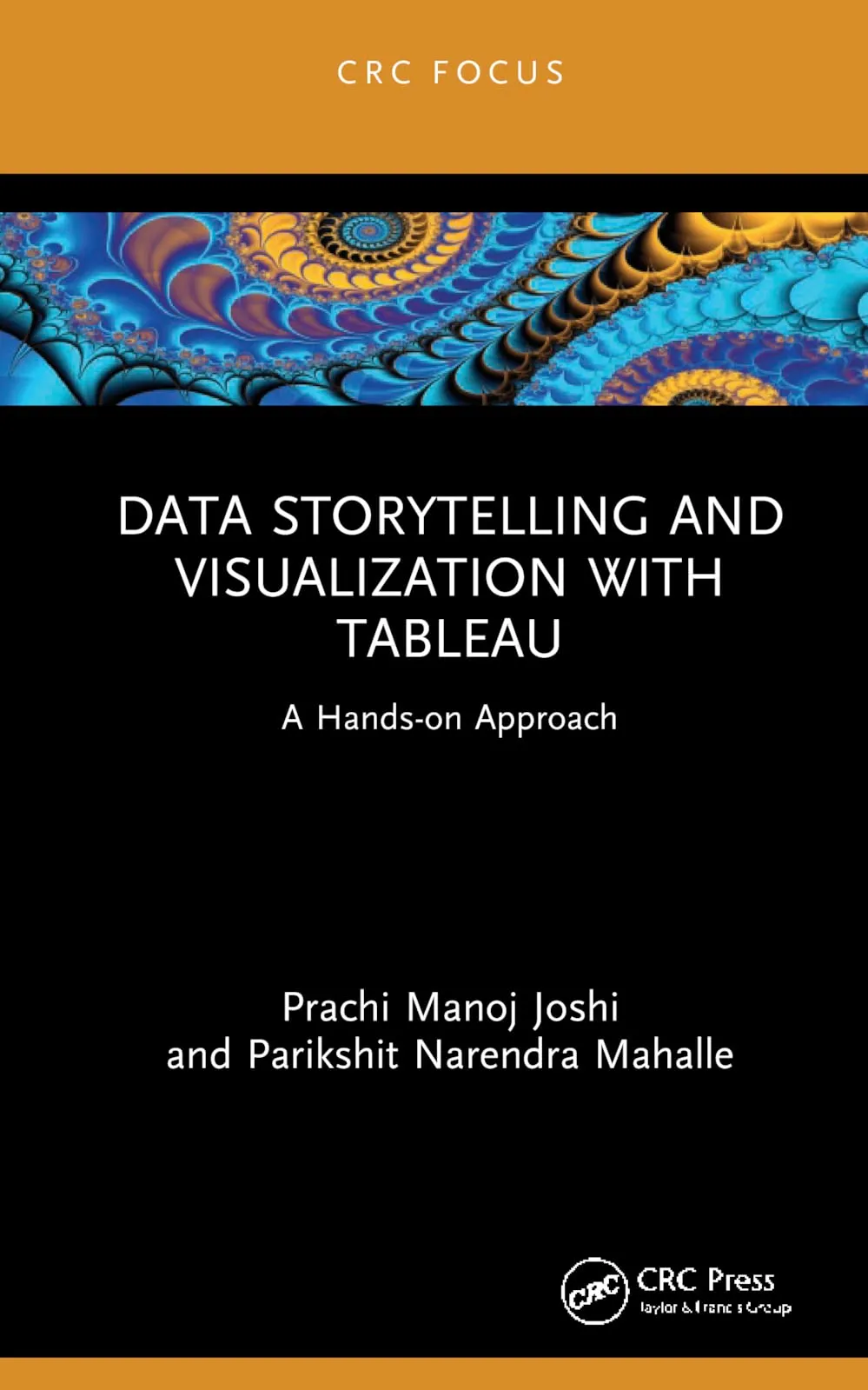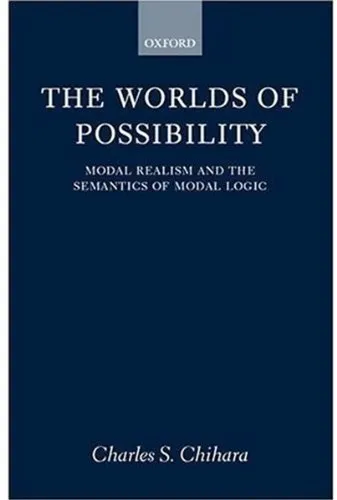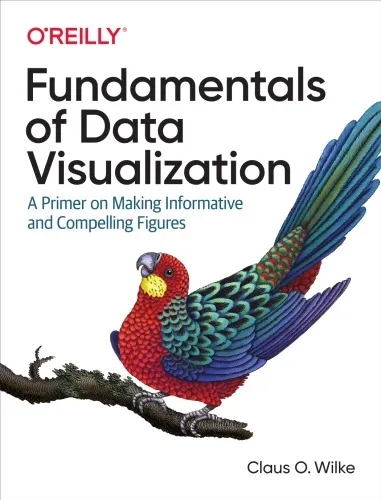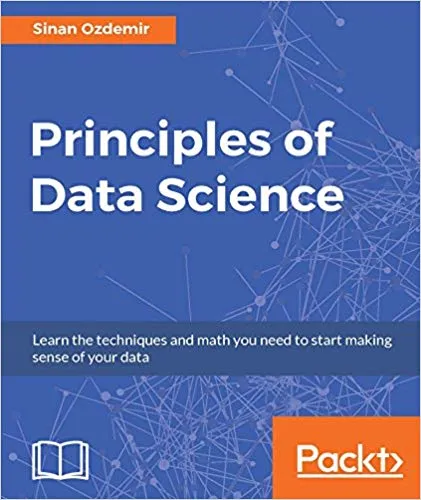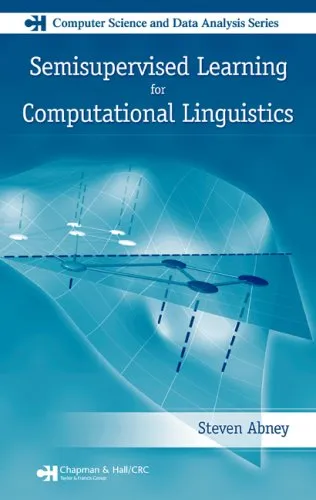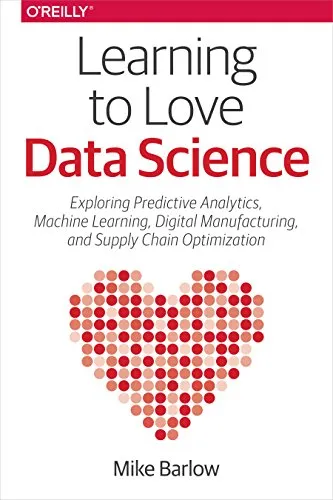Logic for Learning: Learning Comprehensible Theories from Structured Data
4.0
بر اساس نظر کاربران

شما میتونید سوالاتتون در باره کتاب رو از هوش مصنوعیش بعد از ورود بپرسید
هر دانلود یا پرسش از هوش مصنوعی 2 امتیاز لازم دارد، برای بدست آوردن امتیاز رایگان، به صفحه ی راهنمای امتیازات سر بزنید و یک سری کار ارزشمند انجام بدینکتاب های مرتبط:
معرفی جامع کتاب Logic for Learning: Learning Comprehensible Theories from Structured Data
کتاب Logic for Learning که توسط J.W. Lloyd نگارش شده است، به بررسی عمیق مفاهیم یادگیری ماشین و منطق فکری در چارچوب ساختارمند دادهها میپردازد. این کتاب به شکلی دقیق و جامع، نظریهها و چارچوبهایی را ارائه میدهد که به ما کمک میکنند تا سیستمهای یادگیری مؤثری که قابل فهم برای انسانها هستند، توسعه دهیم.
خلاصهای جامع از محتوای کتاب
کتاب Logic for Learning با تأکید بر اهمیت ارتباط بین منطق و هوش مصنوعی، به معرفی روشها و مفاهیمی میپردازد که منجر به یادگیری از دادههای ساختیافته میشوند. این کتاب به تفاوتهای اساسی بین مدلهای یادگیری سنتی و روشهای مدرن میپردازد و استدلال میکند که استفاده از منطق نمادین و رسمی، کلید توسعه مدلهایی است که هم قابل توضیح باشند و هم با دیگر علوم داده تعامل موثری داشته باشند.
در این کتاب، نویسنده رویکردی ترکیبی را اتخاذ کرده است که از مزایای Inductive Logic Programming (ILP) بهره میبرد. این روش به کاربران کمک میکند تا نظریههای کاملاً مفهومی و معنادار بسازند که نه تنها با دادههای آموزشی سازگارند، بلکه قابلیت تعمیم نیز دارند.
هسته اصلی کتاب، توسعه الگوریتمها، چارچوبها و نظریههایی است که یادگیری ماشین را به سطحی بالاتر از سطح فعلی ارتقا میدهد، جایی که تمرکز بیشتر بر فهم انسانی همراه با دقت ریاضیاتی است.
نکات کلیدی و آموزههای برجسته
- ترکیب نظریههای نمادین با یادگیری ماشین برای بهبود قابل مشاهده عملکرد سیستمها.
- توضیح مفصل مفهوم Inductive Logic Programming (ILP) و کاربردهای آن.
- اهمیت درک دادههای ساختیافته و روشهای استفاده از آنها برای ساخت نظریههای قابل توضیح.
- بررسی ابزارهای ریاضیاتی و منطقی که پایه و اساس یادگیری مدلهای هوشمند را تشکیل میدهند.
- چالشهای یادگیری از دادههای پیچیده و راهحلهای پیشنهادی نویسنده.
جملات مشهور از کتاب
"Understanding is not only about accuracy; it's about creating models that humans can trust and interpret."
"Logic allows us to bridge the gap between symbolic reasoning and complex data-driven methodologies."
"In a world of structured data, the key lies not just in learning but in comprehending what we learn."
چرا این کتاب اهمیت دارد؟
در دنیای مدرن، یادگیری ماشین به یکی از ارکان اصلی بسیاری از تحقیقات و کاربردهای فناوری تبدیل شده است. با این حال، بسیاری از مدلهای مدرن مانند شبکههای عصبی عمیق، به دلیل ماهیت پیچیده و غیرقابل توضیح بودنشان، با مشکلاتی در پذیرش و اعتماد کاربران مواجهاند. کتاب Logic for Learning تلاش میکند تا این شکاف را پر کند.
این کتاب با ارائه مبانی نظری و کاربردهای عملی، دریچهای جدید به سمت ایجاد مدلهایی باز میکند که به طور کامل قابل توضیح، منطقی، و مبتنی بر دادههای ساختیافته هستند. با مطالعه و درک این کتاب، میتوان درک عمیقتری از ارتباط بین منطق، داده، و یادگیری ایجاد کرد و مدلهایی ساخت که نقش مهمتری در تصمیمگیریهای پیشرفته داشته باشند.
به طور کلی، کتاب برای پژوهشگران، دانشجویان، و حرفهایهای حوزه هوش مصنوعی و یادگیری ماشین یک منبع ضروری و ارزشمند است که اصول پایهای و پیشرفته را به طور همزمان پوشش میدهد.
Introduction to "Logic for Learning: Learning Comprehensible Theories from Structured Data"
In a world where artificial intelligence and machine learning are increasingly pivotal to our everyday lives, there's a constant need to understand how systems learn, reason, and communicate those learned insights. "Logic for Learning: Learning Comprehensible Theories from Structured Data" is a fascinating exploration of methods and techniques that underscore the importance of comprehensible theories in learning systems. This book doesn't just cater to computer scientists and logicians but also to practitioners and researchers seeking to delve deeper into theoretical and practical aspects of structured data and interpretable models.
The significance of comprehensibility in learning is immense. With the rising demand for explainable AI (XAI), the ability to generate structured and understandable theories has never been more crucial. This book eloquently bridges the gap between formal logic and machine learning, offering profound insights into the intersection of these domains. Its unique approach, grounded in rigorous theory, ensures readers gain a fundamental understanding of how structured data can be utilized for learning systems that are not only accurate but also transparent and interpretable.
Detailed Summary of the Book
"Logic for Learning: Learning Comprehensible Theories from Structured Data" seeks to demystify the world of logic-based learning. The book begins by establishing the foundational aspects of computational learning theory, introducing readers to a framework that combines first-order logic and data-driven machine learning techniques. It delves into the following key areas:
- The fundamentals of logical representations—how they can be both expressive and interpretable.
- Techniques for learning structured theories from data, focusing on rule-based systems and logical models.
- Mechanisms for ensuring that learned theories retain a level of comprehensibility for humans, a cornerstone of explainable AI.
- The application of these logical learning techniques across diverse domains such as bioinformatics, natural language processing, and robotics.
The book seamlessly blends formal methods with practical insights, ensuring that its audience, regardless of their background, can connect theory with application. Through numerous examples, illustrative scenarios, and hands-on approaches, it guides readers in developing theories that are not just accurate but also easily understandable by experts and non-experts alike.
Key Takeaways
By the end of "Logic for Learning," readers will walk away with several important lessons:
- A strong grasp of how first-order logic serves as a basis for creating interpretable learning models.
- Insight into why comprehensibility in machine learning theories matters, especially in critical fields like healthcare and law.
- Hands-on understanding of computational frameworks that incorporate structured data for better learning outcomes.
- The confidence to implement logical learning methods across real-world applications, bridging the gap between data and human decision-making.
- Theoretical insights into how logic and machine learning can harmoniously coexist within AI systems to solve complex problems.
Famous Quotes from the Book
The book is rich in insightful statements, and a few standout quotes include:
“Learning is not just about modeling data but also about creating a structure that humans can understand and trust.”
“Logic provides the foundation upon which transparent and interpretable theories can be built, giving meaning to the process of learning.”
“In a world awash with data, comprehensible theories stand as beacons of interpretability, guiding our understanding and decisions.”
Why This Book Matters
Artificial intelligence and machine learning are transforming industries, but their outputs and processes are often opaque. This lack of interpretability poses challenges, especially when AI systems are used in life-critical fields like healthcare, finance, and law. Understanding the "why" behind AI decisions is increasingly essential. "Logic for Learning" addresses this by equipping readers with the tools and knowledge to bridge the gap between raw data and clear, actionable insights.
By focusing on logic-based learning, this book prioritizes systems that are not just accurate but also trusted by those who rely on them. Its relevance grows as technology advances, encouraging a world where machines can explain their reasoning to humans effectively. For researchers, practitioners, and even policy-makers, "Logic for Learning" serves as a guiding light for fostering meaningful human-AI collaboration.
In summary, this book is not only a theoretical masterpiece but also a practical manual for creating intelligent systems that can be understood, trusted, and adopted across domains where interpretability is key.
دانلود رایگان مستقیم
شما میتونید سوالاتتون در باره کتاب رو از هوش مصنوعیش بعد از ورود بپرسید
دسترسی به کتابها از طریق پلتفرمهای قانونی و کتابخانههای عمومی نه تنها از حقوق نویسندگان و ناشران حمایت میکند، بلکه به پایداری فرهنگ کتابخوانی نیز کمک میرساند. پیش از دانلود، لحظهای به بررسی این گزینهها فکر کنید.
این کتاب رو در پلتفرم های دیگه ببینید
WorldCat به شما کمک میکنه تا کتاب ها رو در کتابخانه های سراسر دنیا پیدا کنید
امتیازها، نظرات تخصصی و صحبت ها درباره کتاب را در Goodreads ببینید
کتابهای کمیاب یا دست دوم را در AbeBooks پیدا کنید و بخرید
1145
بازدید4.0
امتیاز0
نظر98%
رضایتنظرات:
4.0
بر اساس 0 نظر کاربران
Questions & Answers
Ask questions about this book or help others by answering
No questions yet. Be the first to ask!
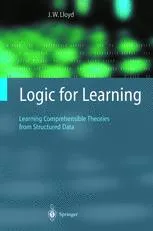

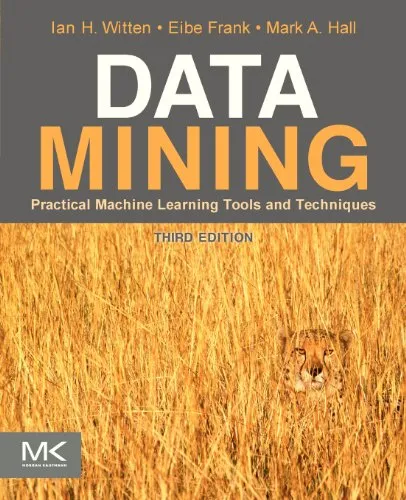
![Statistics: The Art and Science of Learning from Data [RENTAL EDITION]](https://s3.refhub.ir/images/thumb/Statistics__The_Art_and_Science_of_Learning_f_9188.webp)

